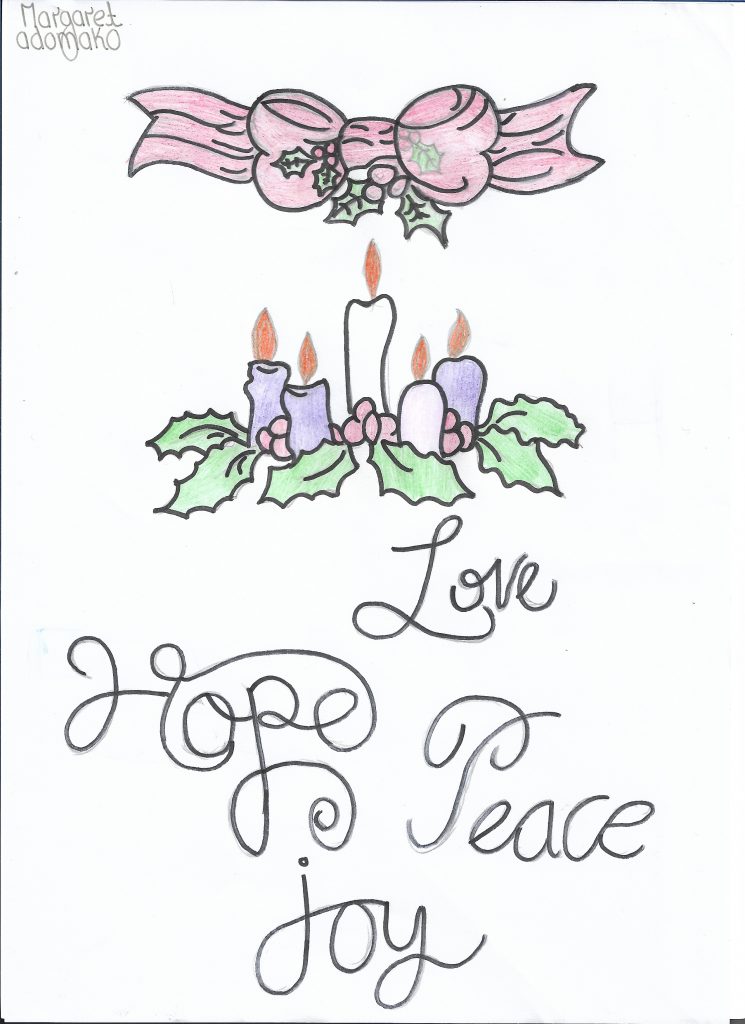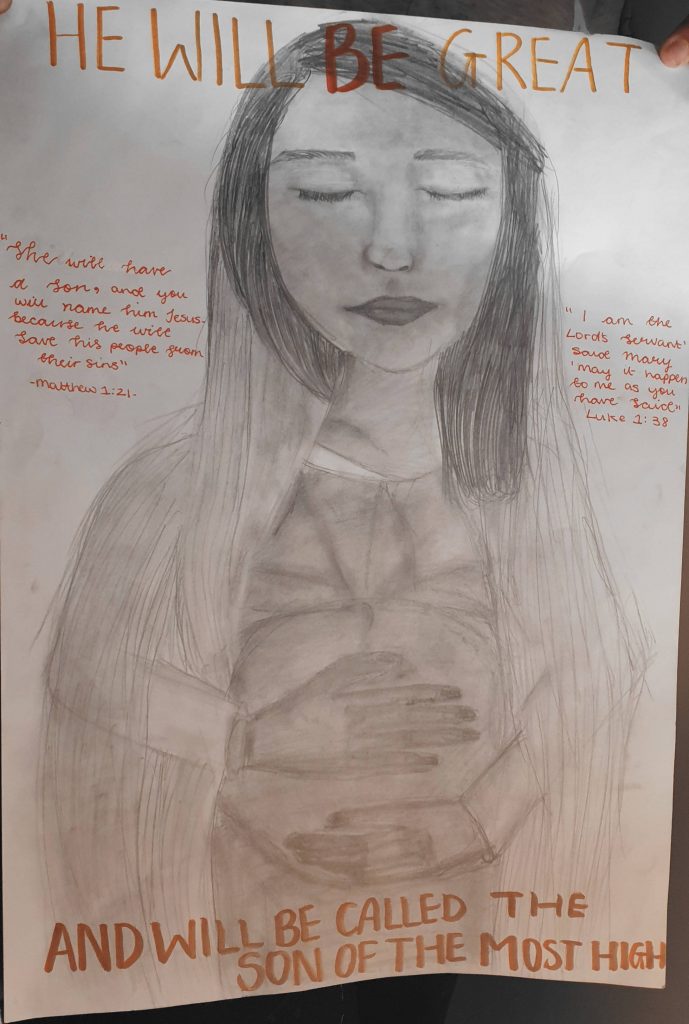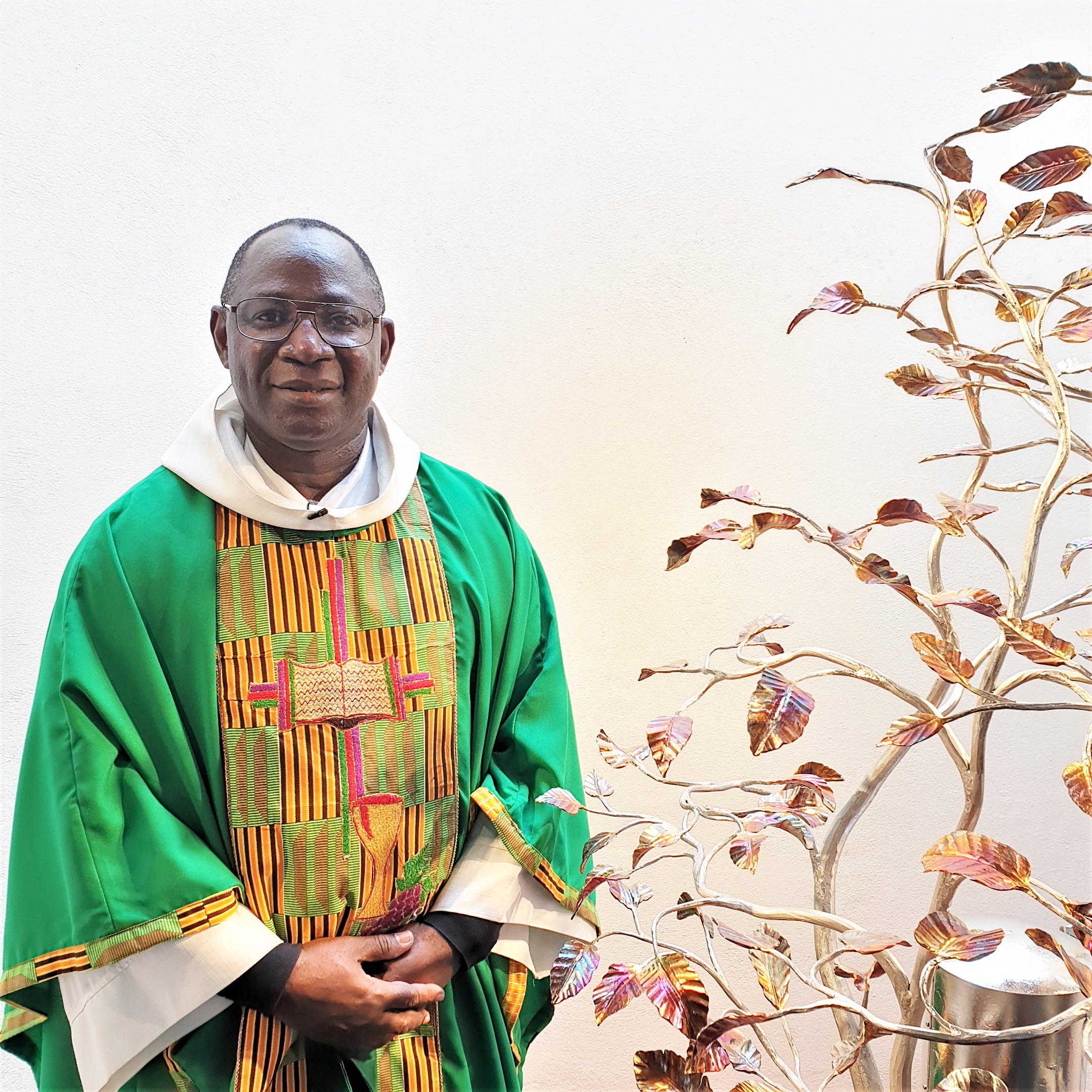Today, we celebrate the Assumption of the Blessed Virgin Mary, a belief by many Christians down through the centuries, but only made formal by the Church in 1950. This belief, that because Our Lady was born without sin, that when she died, she was Assumed, body and soul into heaven. Mary is incorruptible (Immaculate Conception and Assumed into heaven) [CCC2853]. Given that Mary, brought Jesus into the world, some of the Fathers of the Church referred to Mary as the Ark of the Covenant; this emphasises that just as the Lord was especially present to Israel in the Ark of the Covenant, fashioned by Moses, so the Lord was uniquely present in the womb of the Blessed Virgin Mary.1
Mary, a young girl, whose ‘yes’ changed the world and brought about our salvation. Our Lady is a great example for us. Mary, chosen to bring Jesus into the world, stayed close to Him throughout His life and was present when Jesus came into the upper room after He rose from the dead.
How fitting that Mary, who brought Jesus into the world; and who was given to us as our mother by Christ on the Cross; is also the one who shows us the way to heaven through her son. The Gospel used at the Vigil Mass for this Solemnity is a very short Gospel, it speaks of happiness. Jesus replies to a comment from the crowd, which if we listen is saying how proud Jesus’ Mother must be. Jesus quite simply says Happy those who hear the word of God and keep it. For me this mirrors the words of Our Lady from the Wedding Feast at Cana, when she says to the servants and to us “Do whatever He tells you” (John 2:5).

When Mary was called to be the Mother of Jesus, her ‘yes’ was immediate. “Be it done to me as you have said” (Luke 1:38). I look at this immediate commitment and wonder why it took me so long to give my yes to becoming a deacon. I believe we all need to look at ourselves and ask what is God calling us to do? We might not think that whatever it is, is possible. But think of what God called Mary to do. Mary asked the question how is this possible? The answer was that God would send down his Holy Spirit. Things which appear impossible to mankind are possible to God. God does not call the able, he enables the called.
If we look at the news this week there have been many tragedies. Some of which we call ‘Natural disasters’ others horrific acts of violence and war. We look at the natural disasters and ask why? The world’s climate is changing; a report this week has put the blame firmly at mankind’s door. Our desire to exploit natural resources has affected the balance of the world’s eco-system. We might ask what can I do as an individual the problem is so vast? Mary’s ‘yes’ tells us that we as individuals can change the world!
The violent acts in Plymouth, Nantes and Afghanistan this week and the continued persecution of Christians in Nigeria and other parts of the world are evidence of evil in our midst. The reading used as the first reading in the Mass of the day reminds us that ultimate victory will be God’s, Mary played her part in that. “Victory and power and empire for ever have been won by our God, and all authority for his Christ”.
We pray the prayer of Our Lady, which she shared with her cousin Elizabeth – the Magnificat, in there we hear that princes have been pulled down from their thrones and the lowly have been exulted. We turn to Mary as our Mother and Queen of Heaven and we ask her every day to intercede for us, bring an end to violence and hatred, to turn all men’s heart to the common good of our world so that we can all work together to look after this beautiful world that God has entrusted to us.
Further Reading
Catechism of the Catholic Church (CCC)2
CCC 411, 966-971, 974-975, 2853: Mary, the New Eve, assumed into heaven
CCC 773, 829, 967, 972: Mary, eschatological icon of the Church
CCC 2673-2679: at prayer with Mary
Please keep in your prayers
- Those affected by Climate Change and those who have the means to do something to help the world change course
- Those who are sick, those who are dying, the recently deceased and those who mourn.
- Those preparing to return to Mass.
- The Year of the Eucharist, which has now started, that this will lead to a fresh outpouring of love by the people of God for the Body and Blood of Christ.
- Those who have been unable to receive the Eucharist during the pandemic.
- Those involved in preparing our pastoral area ‘Big event’ on the 4th Sept’ – may it be a wonderful opportunity for our local parishes to come together, enjoy each other’s company and show our love of God and neighbour.
1 Placid Murray OSB, 100 Liturgical Homilies, (The Columba Press, Dublin, 1988)124-5.








